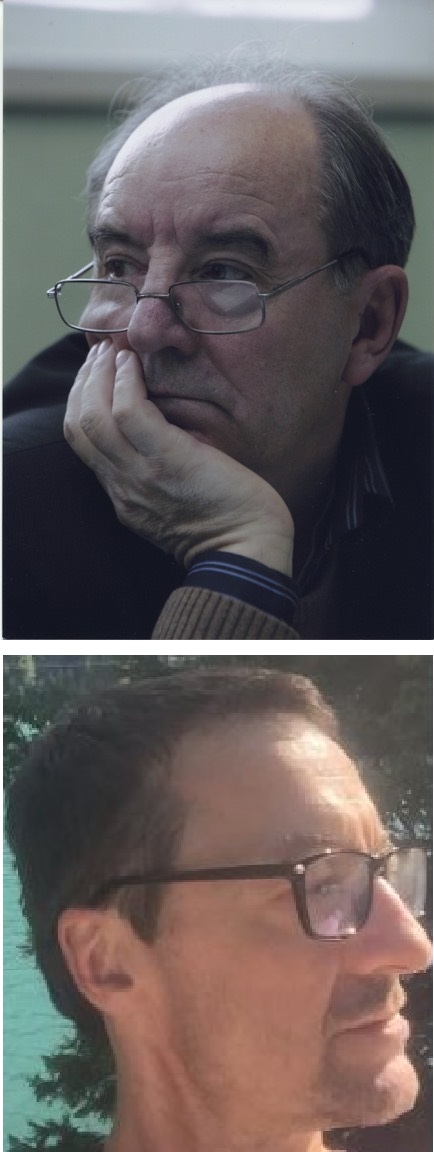Is Film Philosophy Possible and What Aspects of Cinema May Become its Subject?
- Authors: KHrenov N.1, KHrenov A.2
-
Affiliations:
- S.A.Gerasimov Russian State Institute of Cinematography (VGIK)
- Научно-исследовательского сектора ФГБОУ ДПО «Академия медиаиндустрии»
- Issue: Vol 13, No 3(49), 2021
- Pages: 96-114
- Section: SCREEN CULTURE | CULTURAL STUDIES. PHILOSOPHY
- URL: https://old.vestnik-vgik.com/2074-0832/article/view/88714
- DOI: https://doi.org/10.17816/VGIK88714
Cite item
Full Text
- Abstract
- Ключевые слова
- Full Text
- About the authors
- Литература / References
- Supplementary files
- Statistics
Abstract
The use of a complex methodology in cinema studies is constantly being discussed. There are researches on sociology, psychology, aesthetics and semiotics of cinema. The movement towards an integrated methodology makes the idea of a philosophy of cinema relevant. The synthesis of different academic approaches in cinema studies can be only understood in terms of philosophy. Each discipline sees and is able to explain through cinema merely what is connected with its agenda. An appropriate methodology needs to be developed so that these different aspects of cinema are transformed into the elements of a uniform system. The article analyzes the philosophical approach to cinema studies of Gilles Deleuze, who made cinema instrumental in examining time. Deleuze’s work in question explores Henri Bergson's argumentation of dramatic changes in the perception of time. It would seem that it was cinema, with its ability to capture the dynamism of social life, that should have demonstrated the meaning of such changes. Bergson understood, quite traditionally, the ability of cinema to recreate time in the forms of space. Deleuze shares the conventional point of view on the fate of philosophy, which argues that previous philosophy disappears and, dissolving in art, exists only in artistic manifestations.
The authors conclude that:
1. The intrusion of philosophy into cinema dictates the need to develop a theory as a mediator between film philosophy and filmmaking.
2. When studying cinema through other liberal sciences, it is necessary to avoid discussing specific aspects and strive for a systematic consideration.
3. The study of cinema from the point of view of various schools of thought, does not exclude finding points of contact between them.
4. The need for an integrated methodology in studying cinema involving philosophical angles is also dictated by the rapid development of technology. It is necessary to take into account what has already been accomplished in the philosophy of technology.
Full Text
KHrenov Nikolay
доктор философских наук, профессор
S.A.Gerasimov Russian State Institute of Cinematography (VGIK)
, 3, Wilhelm Pik street, 129226 Moscow, Russia
Email: vestnik-vgik@vgik.info
KHrenov Andrey
кандидат культурологии, ведущий научный сотрудник
Научно-исследовательского сектора ФГБОУ ДПО «Академия медиаиндустрии»
Russian Federation, 127521, Российская Федерация, Москва, ул. Октябрьская, д. 105, корп. 2, Академия медиаиндустрии (ИПК работников ТВ и РВ)
Author for correspondence.
Email: andrei.khrenov@gmail.com
References
- Balazs B. (1925) Kultura kino [The culture of film]. Leningrad-Moscow: Gosudarstvennoe izdatelstvo, 1925. 98 p. (In Russ.).
- Bordwell D. (2012) Poetika kino [Poetics of cinema] // Kinovedcheskiye zapiski, 2012. Issues 100/101. pp. 130–184. 704 p. (In Russ.).
- Veitsman E. (1978). Ocherki filosofii kino [Essays in film philosophy]. M: Iskusstvo. 1978. 232 p. (In Russ.).
- Deleuze J. (2016) Kino [Cinema]. Moscow: Ad Marginem Press, 2016. 560 p. (In Russ.).
- Zhabsky M. (2020). Sotsiologiya kino [Sociology of cinema]. M.: Kanon-Plus. 2020. 512 p. (In Russ.).
- Ivanov V.V. (1998) Estetika Eisensteina [Eisentsein’s aesthetics] // Izbrannye trudy po semiotike i istorii kultury. Vol. 1. Moscow: Yazyki russkoi kultury, 1998. 912 p. (In Russ.).
- Kosuth J. Iskusstvo posle filosofii [Art after philosophy] // Iskusstvoznanie. 2001. Issue 1. Рp. 543-563. (In Russ.).
- Lotman Yu. (1973) Semiotika kino i problemy kinoestetiki [The Semiotics of Cinema]. Tallinn: Eesti Raamat, 1973. 140 p. (In Russ.).
- Pazolini P-P. (1985). Poeticheskoye kino [Poetic cinema] // Stroyeniye filma. M.: Raduga, 1985. Рp. 45-66. 280 p. (In Russ.).
- Polikarpova D. (2020). Kinematograficheskiy opyt bez zritelia: filosofia kino kak filosofia kinematograficheskoi chuvstvennosti [Cinematic experience without a spectator: The philosophy of cinema as the philosophy of cinematic sensuality] // Kinematograficheskiy opyt. Istoria-teoria-praktika. Saint-Petersburg: Izdatelstvo “Poriadok Slov”, 2020. Рp. 203-227. (In Russ.).
- Poetika kino (Pod redaktsiei B. Eikhenbauma) [The Poetics of cinema. Edited by B.Eikhenbaum]. Moscow-Leningrad: Teakinopechat’, 1927. (In Russ.).
- Poetika kino. Teoreticheskie raboty 1920-h godov. [The Poetics of cinema. Theorethical works of the twenties]. Moscow: Akademicheski Proekt, 2016. 497 p. (In Russ.).
- Sokolov V. (2010). Kinovedenie kak nauka [Cinema studies as science]. Moscow: Research Institute for Cinematography, 2010. p. (In Russ).
- Khrenov N. (2014). Proekt semiotiki kino spustia neskolko desiatiletiy: [The project of film semiotics after several decades: An interpretation of S.Eisenstein’s theoretical heritage by V.V.Ivanov] // Kultura i iskusstvo, 2014. Issue 6. Рp. 162-378 (In Russ.).
- Khrenov N. (2019). Sovremennoe iskusstvoznanie kak gumanitarnaya nauka v situatsii kulturologicheskogo povorota [Contemporary art history as a humanitarian science in the situation of a cultural turn] // Vestnik VGIKa, 2019 (Issues 1-4), 2020 (Issues 1-2). (In Russ.).
- Eisenstein S. (1980). Psihologia iskusstva (Neopublikovannye konspekty stat’i i kursa lektsiy) [The psychology of art (The unpublshed abstracts of the article and course of lectures)] // Psihologia protsessov khudozhestvennogo tvorchestva. Chief editors B.S.Meylakh, N.A.Khrenov. Moscow: Nauka, 1980. Рp. 173-203. 286 p. (In Russ.).
- Yampolsky M. Iz istorii frantsuzskoi kinomysli. Nemoye kino [From the history of the French film thought. Silent Cinema]. Moscow: Iskusstvo, 1988. 216 p. (In Russ.).
- Khrenov N. (2007). Cinema аs the Redemption of Archtypal Reality // Narration and Spectatorship in Moving images. Edited by J.D.Anderson and B.F.Anderson. Newcastle: Cambridge Scholars, 2007. Pp. 29-41.
Supplementary files
There are no supplementary files to display.







